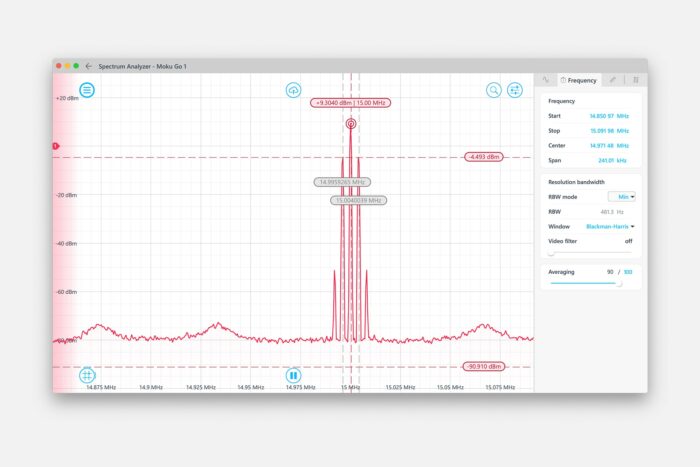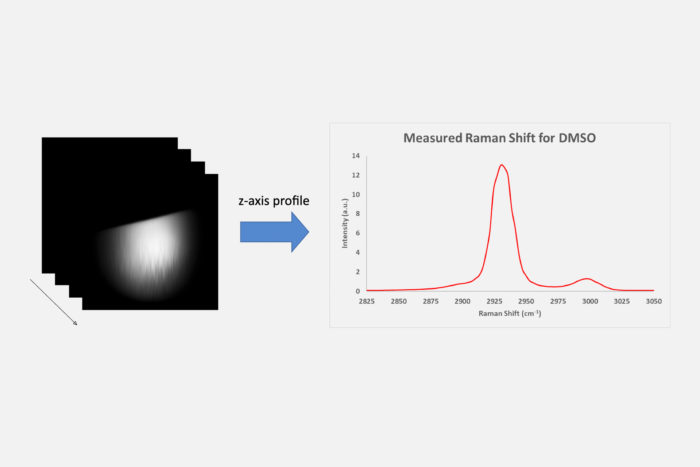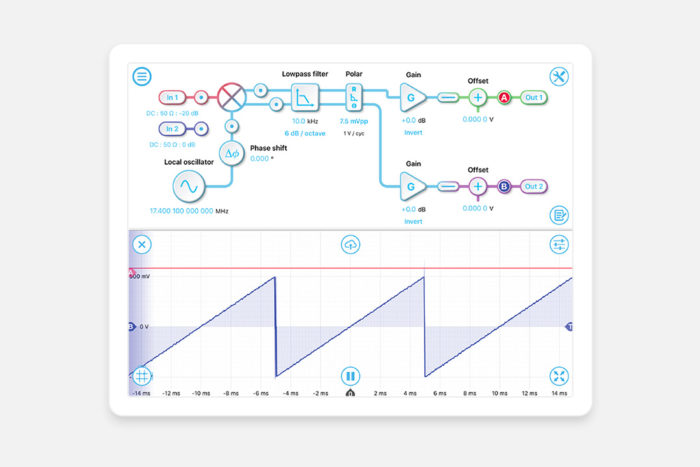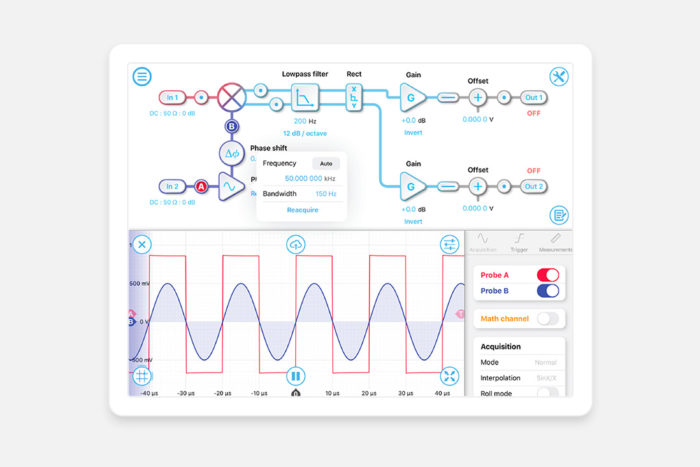![]()
PID Controller
With the Moku PID Controller, it’s easy to leverage up to four fully configurable PID controllers to simplify system feedback and stabilization. Deploy them in applications requiring both low and high feedback bandwidths, such as laser temperature and current stabilization. For maximum flexibility, you can also utilize the Moku PID Controller as a lead-lag compensator by saturating the integral and differential controllers with independent gain settings.
- Available on
- Moku:Pro >
- Moku:Lab >
- Moku:Go >
The Moku PID Controller is easy to use and offers a range of advanced capabilities to optimize your experiment — at the most cost-effective price in the industry.
Key benefits
With up to four independent channels, real-time gain configuration, and an advanced multi-section PID builder, you can expect more from the Moku PID Controller.
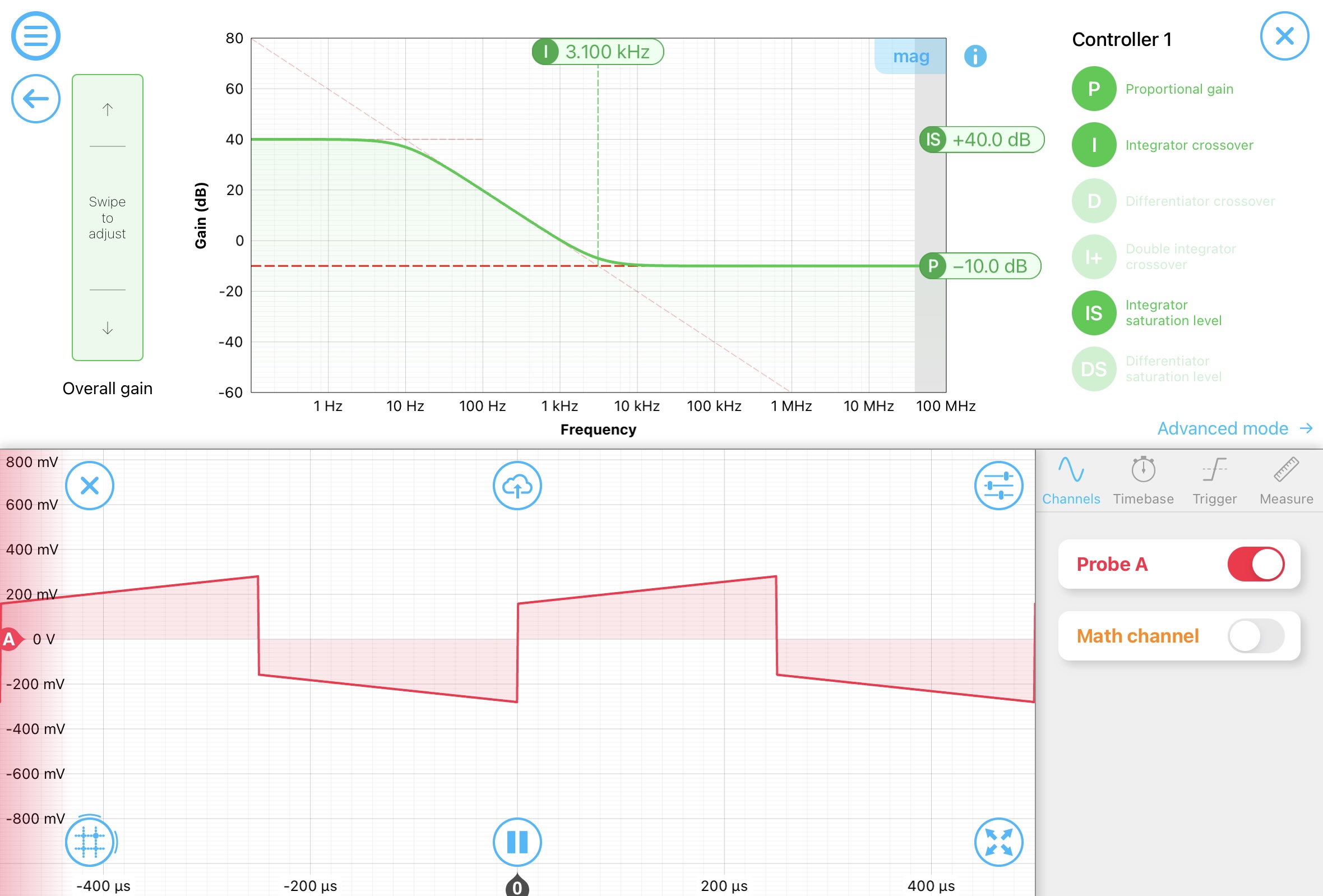
View system responses in real time with the PID response plot
Quickly design your control system’s frequency response using the interactive Bode plot. With built-in Oscilloscope probe points for signal monitoring throughout the signal path, you can adjust parameters and view results simultaneously.
Try the software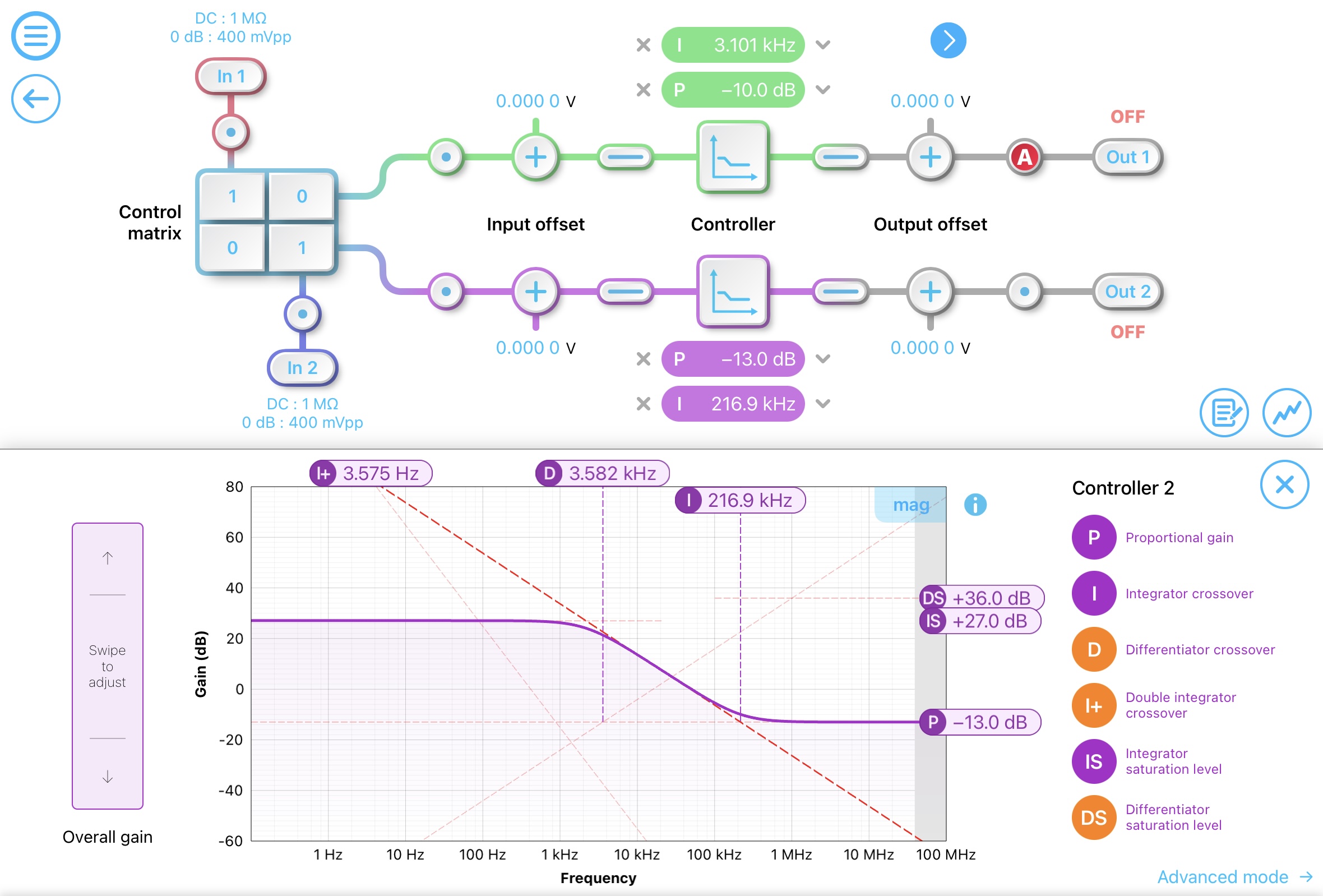
Customize your system response with an advanced multi-section PID builder
The Moku PID Controller includes single or double integrators and differentiators with low- and high-frequency gain saturation. Configure proportional (P), integral (I), differential (D), double-integral (I+), integral saturation (IS), and differential saturation (DS) gain profiles.
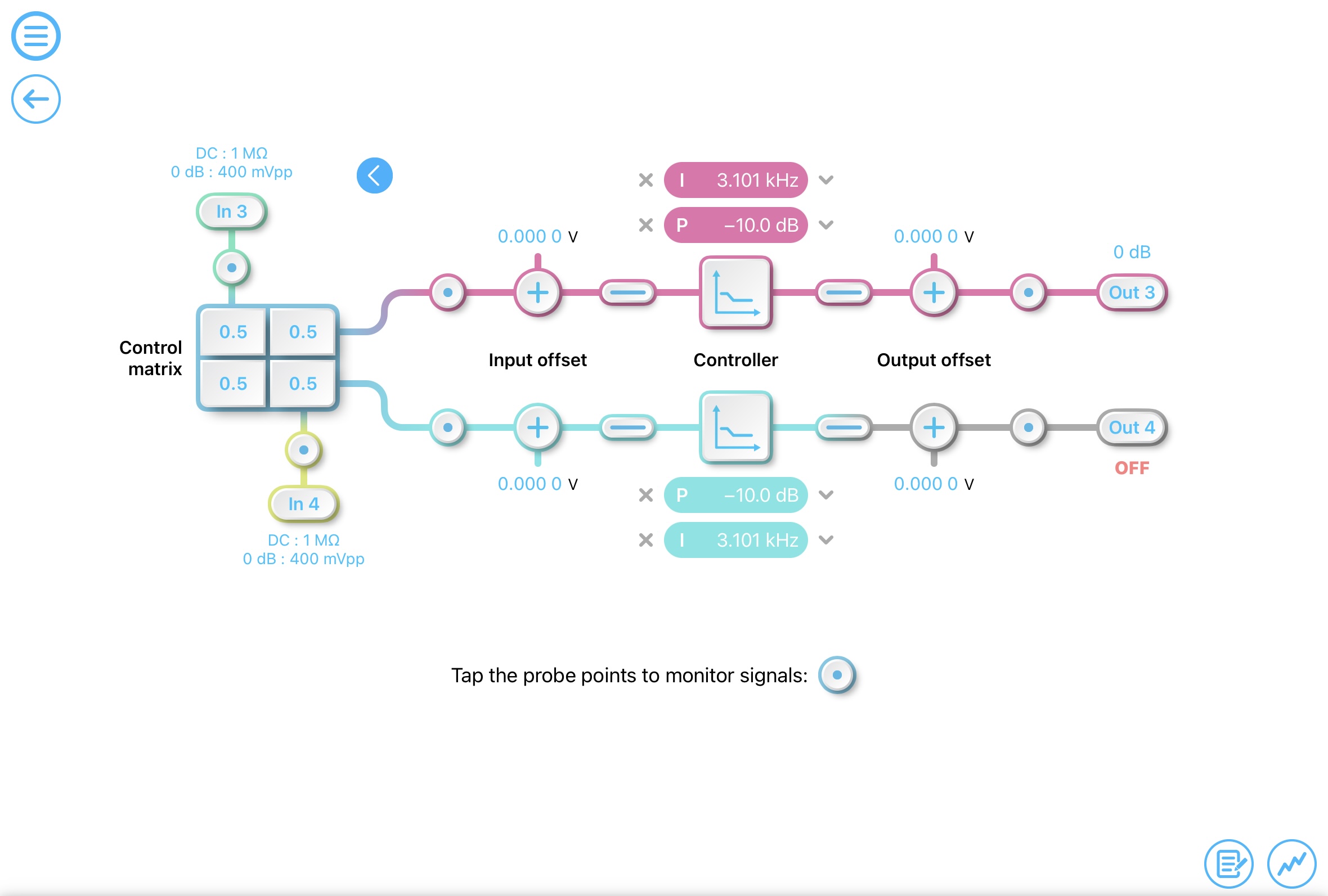
Test smarter with a block diagram view of the DSP workflow
Enable up to four independent, fully real-time configurable PID controller paths. For even more flexibility, you have the option to combine input signals with the control matrix.
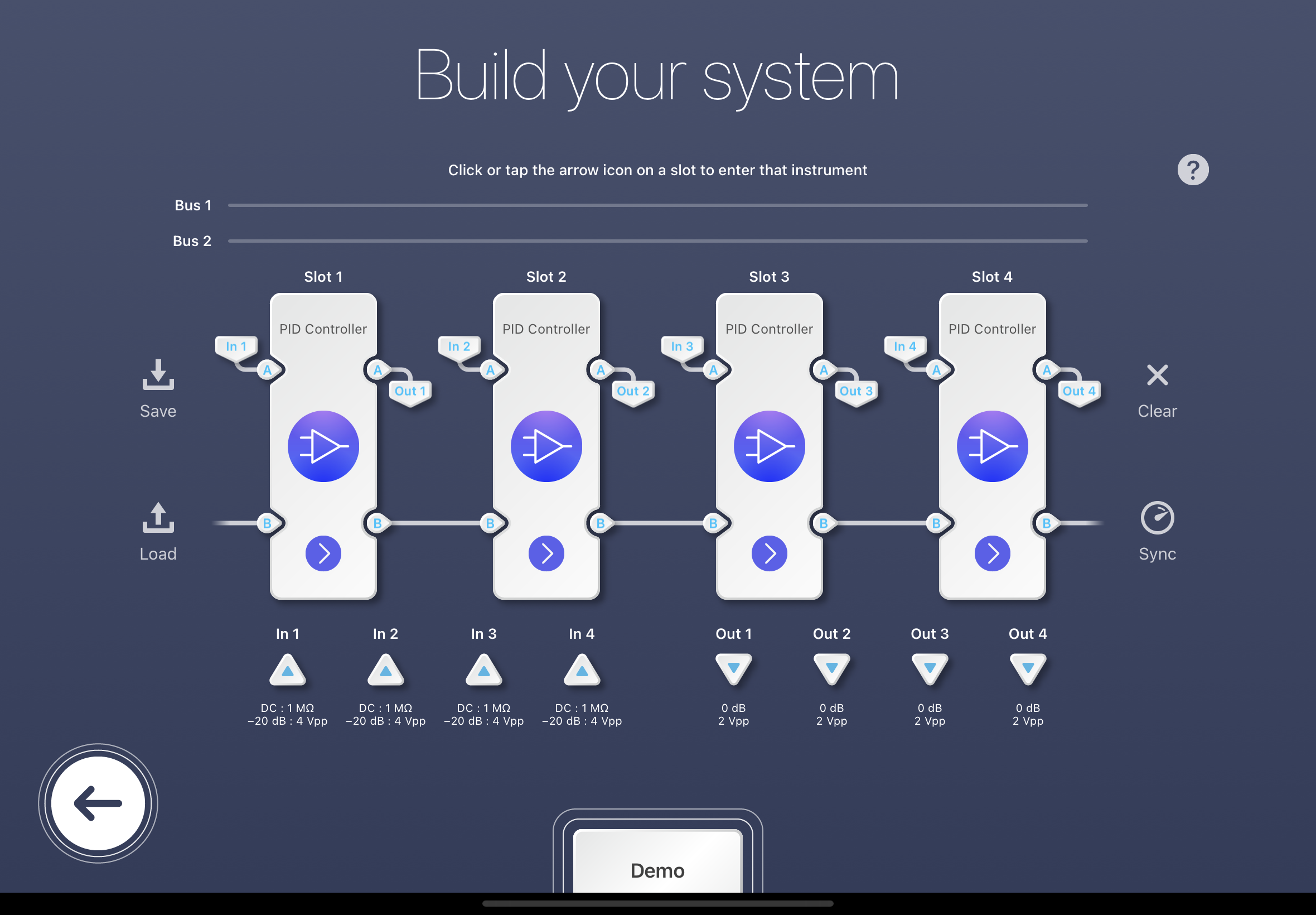
Run multiple instruments simultaneously in Multi-instrument Mode
Four controllers isn’t enough? Get up to eight independent controllers by deploying multiple Moku PID Controllers in Multi-instrument Mode. Route connections to the analog inputs and outputs, or digitally connect instruments together for lossless instrument cabling.

Engineered to work seamlessly with your favorite APIs
API integration with MATLAB, LabVIEW, and more allows straightforward automation of your Moku device in complex setups or for repetitive tasks. Save your measurements, screenshots, traces, and other settings locally or to your preferred cloud app. You can also send work to yourself or colleagues within the Moku app.
Engineered for demanding applications
You can’t innovate for the future when your test equipment is stuck in the past. Use the Moku PID Controller to accelerate development timelines with speed and flexibility unmatched by any other instrument in its class.
Integrates seamlessly with your tech stack






Moku:Go is not compatible with iPadOS
Tech specs and docs
The Moku PID Controller runs on Moku:Pro, Moku:Lab, and Moku:Go. Compare the specifications to choose the right device for your application.


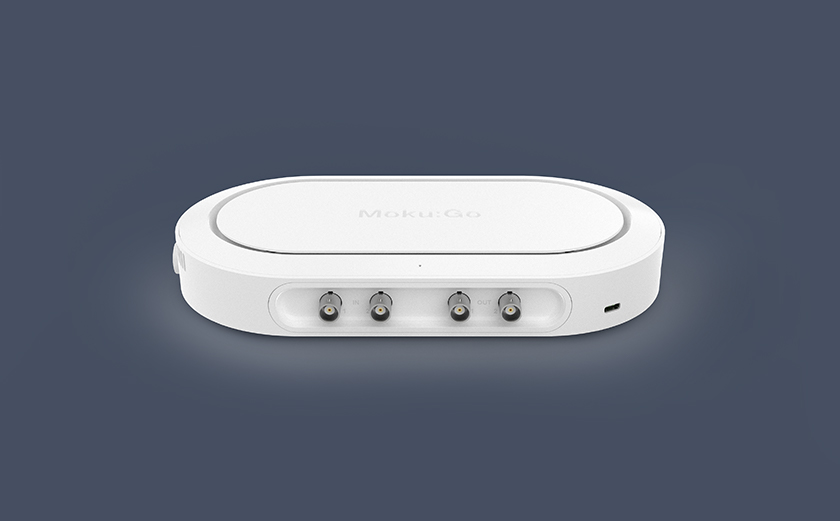
Technical specifications
Channels
4
2
2
Output sampling rate
> 10 MSa/s
> 10 MSa/s
> 2.5 MSa/s
DAC resolution
16 bits
16 bits
12 bits
Phase lag
< 30˚ at 120 kHz
< 30˚ at 100 kHz
< 30˚ at 20 kHz
Integrator crossover frequency
3.125 Hz to 312.5 kHz
1.25 Hz to 125 kHz
12.5 mHz to 31.25 kHz
Differentiator crossover frequency
31.5 Hz to 31.25 MHz
12.5 Hz to 1.25 MHz
3.125 Hz to 312.5 kHz
Software & utilities
iPadOS app
macOS app, Windows app
API support for Python, MATLAB, and LabVIEW
iPadOS app
macOS app, Windows app
API support for Python, MATLAB, and LabVIEW
macOS app, Windows app
API support for Python, MATLAB, and LabVIEW
Documentation
Datasheets
User manuals

Moku:Pro
PID Controller
Technical Specifications
Channels
4 inputs / 4 outputs
Maximum update rate
1.25 GSa/s
Output Bandwidth
500 MHz
DAC Resolution
16 bits
Output Range
± 5 V
Memory Depth
65,536
Software & Utilities
iPadOS app
macOS app, Windows app
API support for Python, MATLAB, and LabVIEW
Documentation
Datasheets
Moku:Pro PID Controller Datasheet
Moku:Pro Hardware Datasheet
User manuals
Moku:Pro PID Controller User Manual

Moku:Lab
PID Controller
Technical Specifications
Channels
2 inputs / 2 outputs
Maximum Update Rate
1 GSa/s
Output Bandwidth
300 MHz
DAC Resolution
16 bits
Output Range
± 1 V
Memory Depth
65,536
Software & Utilities
iPadOS app
macOS app, Windows app
API support for Python, MATLAB, and LabVIEW
Documentation
Datasheets
Moku:Lab PID Controller Datasheet
Moku:Lab Hardware Datasheet
User manuals
Moku:Lab PID Controller User Manual

Moku:Go
PID Controller
Technical Specifications
Channels
2 inputs / 2 outputs
Maximum Update Rate
125 MSa/s
Output Bandwidth
20 MHz
DAC Resolution
12 bits
Output Range
± 5 V
Memory Depth
65,536
Software & Utilities
macOS app, Windows app
API support for Python, MATLAB, and LabVIEW
Documentation
Datasheets
Moku:Go PID Controller Analyzer Datasheet
Moku:Go Hardware Datasheet
User manuals
Moku:Go PID Controller User Manual
Featured resources
From detailed case studies featuring real-world users to comprehensive application notes that explore instrument features and functions, we offer a range of resources to help you work smarter and achieve more with the Moku PID Controller.
